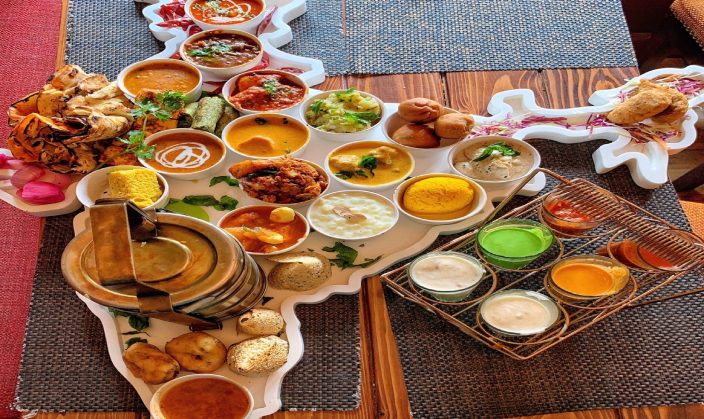Could the jackfruit, fermented rice, or ragi millet on your plate today emerge as the world’s next superfood? This thought formed the centerpiece of a special panel discussion on the fourth day of World Food India 2025, which explored how India’s traditional dishes and indigenous ingredients can form the foundation of contemporary health and global wellness trends.
The panel, titled “India & Its Traditional Indigenous Ingredients – Innovation in Food with Indigenous Ingredients”, highlighted that Indian cuisine is not just a matter of taste and tradition. It is a reflection of health, nutrition, and culinary innovation. According to the speakers, India is home to a vast array of traditional dishes that hold immense potential to be recognized as tomorrow’s superfoods.
Rajesh Tara, a food enthusiast and podcaster, moderated the session and set the tone by emphasizing the richness of India’s culinary heritage: “Indian cuisine is a treasure trove, where every ingredient carries within it the power of health and sustainability. It is our responsibility to reimagine these ingredients and present them to the world in new and innovative ways.”
Dr. Kurush F. Dalal, an archaeologist and food historian, highlighted the historical significance of India’s traditional recipes. He noted that remedies and preparations passed down through generations were not merely home remedies, but in today’s scientific understanding, could be classified as superfoods. He further pointed out that the real strength of Indian cuisine lies in its diversity and the extensive use of local, seasonal ingredients, which ensures nutritional balance and sustainability.
Pritha Sen, a senior journalist and culinary researcher, urged the younger generation to embrace traditional dishes rather than abandon them. She suggested that combining traditional ingredients with modern presentation and culinary techniques can make these recipes appealing on global dining tables. “By reimagining these dishes with innovation, we can introduce India’s culinary heritage to an international audience,” she said.
Dr. Bhupesh Kumar, Principal of IHM Ranchi, and Chef Davinder Kumar, Vice President at Le Meridien, shared insights from the hospitality sector. They observed that the demand for indigenous grains and local dishes is steadily rising in hotels and restaurants. Consumers today are increasingly choosing food not just for its taste but also for its health benefits and sustainability. This trend, they noted, provides an opportunity for traditional Indian ingredients to gain a prominent place in modern cuisine.
Diwan Gautam Anand, Founding Trustee of the Cuisine India Foundation, and Chef Usama Jalali, Cuisine Director at Majlis, highlighted the urgent need to promote millets, traditional spices, and fermented foods aggressively in international markets. They argued that such initiatives would not only strengthen India’s food diplomacy but also provide substantial economic opportunities for farmers and local producers.
The panel concluded that Indian cuisine is not merely a cultural legacy; it is also a key driver of future global health trends. At a time when the world is increasingly seeking sustainable foods and nutritious diets, India’s traditional ingredients and culinary practices offer a holistic solution. By marrying age-old wisdom with modern innovation, India can position its culinary heritage as a global benchmark for healthy and sustainable eating.

